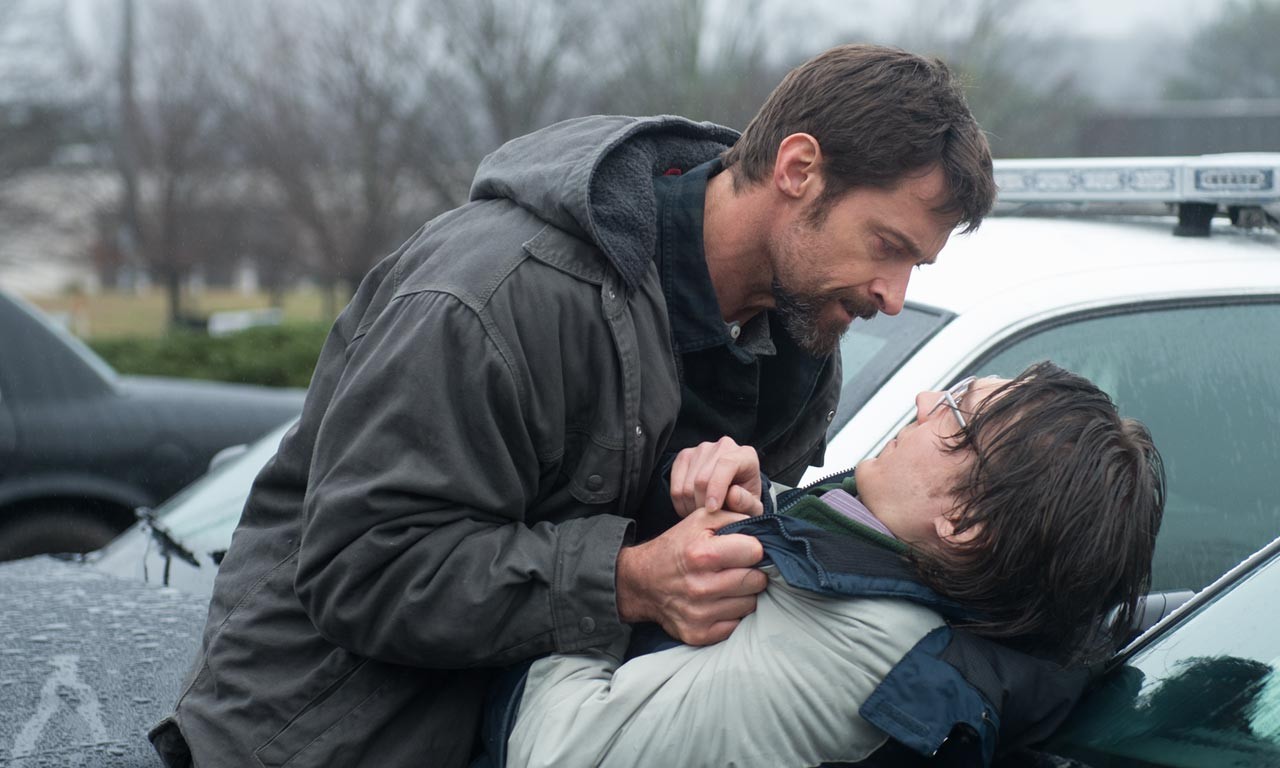PRISONERS. Denis Villeneuve’s unpredictable thriller. Reminiscent of “The Silence of the Lambs.”

I warn you from the outset that Prisoners is a film where the less you know, the better. The satisfaction comes from scratching your head during the screening, so I’ll try not to reveal any important plot points, limiting myself only to what seems necessary in reviewing this title.
Two families who are friends spend Thanksgiving together when, at a certain moment, they realize that their two-year-old daughters have disappeared. They are not at home, on the street, or at the swings. The brother of one of the girls remembers that they were interested in a camper parked nearby, but it’s no longer there. The police quickly locate the vehicle and apprehend its owner, a twenty-something intellectually disabled man named Alex. The boy does not admit to kidnapping or having any contact with the children. After an unsuccessful search of his car and the house of his aunt, where he lives, the police are forced to release him. This doesn’t sit well with one of the fathers of the missing girls, Keller (played by a furious Hugh Jackman), who, believing in Alex’s guilt, decides to imprison him and forcefully extract the truth.
Hollywood rarely approaches the subject of abducted children with such seriousness, and the despair and desperation of parents to the extent seen in Prisoners were last observed in Clint Eastwood’s Mystic River. However, Denis Villeneuve’s film surprises more with numerous plot twists in the second half, making it a truly unpredictable thriller. The gloomy and oppressive atmosphere persists until the final scenes, but what initially hinted at a sad crime story about tragedy, turning a father into an executioner, is replaced by an intricate puzzle, reminiscent of the famous The Silence of the Lambs and, above all, the Dutch thriller The Vanishing.

But before we get to all these revelations, let’s take a look at the well-written characters of the drama. Keller is a down-to-earth family man, introduced to us as he and his son hunt deer. Shortly afterward, he tells his son about the most important lesson he learned from his grandfather – “always be prepared.” Hence the basement full of food supplies, batteries, and other necessities in case the world suddenly comes to an end and people turn away from them. However, in the face of his daughter’s disappearance, his resourcefulness and convictions turn against him. “I felt safe with you,” he hears from his wife as another day of searching passes, and the used past tense hits him like a hailstorm. But Keller is also a believer who seeks strength and comfort in prayer. And perhaps only torturing Alex makes him notice the words of forgiveness in the “Our Father.” But how can he forgive them (whom?) when he still doesn’t know what happened to his daughter?
Another equally important character in Prisoners is Detective Loki, leading the case. Despite his young age, he doesn’t seem wet behind the ears. He knows his job, understands the stakes, and his professionalism is slowly yielding results. However, the subsequent clues he encounters, the suspects he tracks and interrogates, suggest a much more complicated puzzle than one might initially suspect. The title refers not only to an important motif throughout the investigation but also to the investigation itself – the impossibility of finding the girls, as each new lead gives the investigation a different direction. Somewhere after an hour and a half, I felt as lost as the characters in the movie, suspended between hope for a happy ending (or at least an explanation of the mystery) and a sense of despair emanating from every frame. And just like Loki, trying to piece together and create a logical whole from shreds of information suggesting, in reality, only one possible ending. In Jake Gyllenhaal’s interpretation, he is a man of action, unafraid of violence but also full of faith in police methods and the values he represents.

Denis Villeneuve gained fame with the Oscar-nominated Incendies. There too, the starting point did not herald a fully surprising development, and the calm rhythm of the story (though underlined by constant tension) was interrupted by exceptionally drastic images. The Canadian Oscar nominee, however, told an original story about hatred dictated by religion and origin. In Prisoners, the role of religion seems more pretextual – the symbols used serve more the puzzle than what lies behind it. The titular labyrinth in the film is circular, and the whole story somewhat revolves in a circle, but we learn little about the genesis of evil. Therefore, I rank Villeneuve’s thriller slightly lower than The Silence of the Lambs and The Vanishing, which, using the same convention, more insightfully commented on the essence of evil. However, if we limit ourselves to the purely technical aspects of the film, acting, plot, and execution, Prisoners does not lag behind those two titles at all.

